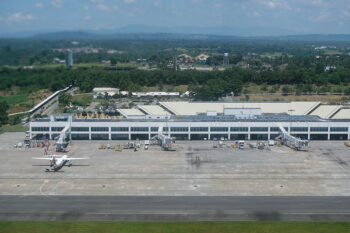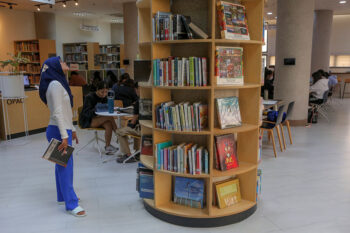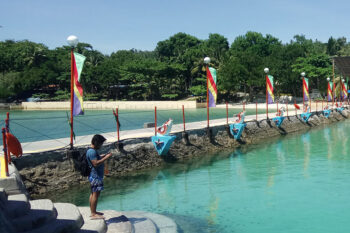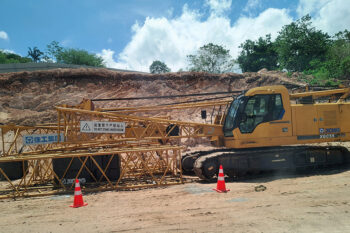MANILA (MindaNews/08 November) – The GRP-MILF peace process is at an impasse and I mean “impasse” in every sense of the word: “deadlock”, “dead end”, “stalemate”, “boxed-in”.
What is the current deadlock all about? The current deadlock is about WHO shall facilitate the negotiations and HOW shall the facilitation process be conducted. I am not talking about the country acting as the facilitator. That has already been settled. It will still be Malaysia. The bone of contention is about who will be the person conducting the actual facilitation.
The Government’s Position.
In an interview with MindaNews last August 14, 2010, the Government Chief Negotiator said:
“Good negotiators, said Leonen, know that the process of the negotiation is “as important as the substance of the conversation.
“We do not want the process to drive the substantive agenda. We want the process to facilitate it. And the process includes the levels of comfort that both negotiating parties have in relation to the parameters of the talks. It should include clear terms of reference that covers matters like the nature of the third party’s participation, protocols in communication, the setting of the agenda, sharing of the minutes of the meetings, possibilities for direct conversations between the parties, role of international actors, among others,” he said.
He said he does not think he and the new administration “can be faulted if we seek to review the terms of reference of the facilitation of the past discussions.”
“I do not think that it is unwise for us to assess, based on the experience of the past panels and secretariats, whether we can be comfortable with the current facilitator. From our present understanding of what transpired towards the end of the past administration, this was even expected by the current facilitator. We would have thought that this would be welcomed by the other party and by the current facilitator (and the state to which she or he belongs), considering that it should show that we are sincere and professional in our tasks,” Leonen said.”
Stripped of diplomatese, the Philippine Government wants to change the current Malaysian facilitator and the existing facilitation architecture – the nature of third party participation, protocols in communication, the setting of agenda, minutes-taking, etc. before any talks begin.
The MILF position.
In response to this, the head of the MILF peace panel secretariat an article entitled Just Starting the Talks is Not Easy, said:
“Ramadan or no Ramadan is game for us, but reengaging the Parties is not an easy happening,” Mantawil commented, adding that the MILF negotiators have met government negotiators several times in the past during Ramadan.
He said the following agreed ground rules of the negotiation have to be followed before the Parties can meet, namely: 1) The facilitating country will be informed by the Parties that they have completed their preparation for the resumption of the talks, more importantly, their peace panels; 2) Upon receipt of these, the facilitator will propose the date and agenda to be taken up, which the government and/or MILF agrees or makes counter-proposals. The meeting could be exploratory, special, or in extreme case, non-meeting. Until these issues are settled by the Parties, no meeting would take place; and 3) There is no direct contact between the two Parties, and therefore, to reengage in the talks, the facilitating country calls the most shots, including informing members of the International Contact Group (ICG) namely Turkey, Japan, The United Kingdom, The Asia Foundation, Centre for Humanitarian Dialogue (HDC) Conciliation Resources, and Muhammadiyah.
He said that it would be much easier if both the facilitation and existing mechanisms of the peace talks will be left “as is, where is” but once these will be put into question, there would be no meeting at all.
“We cannot meet the government directly; this is a thing of the past and part of our grim experience that the government can just set aside any agreement if it wishes,” Mantawil recalled.
The MILF’s position: let us begin where we left off – “as is, where is”, whether it be the facilitator or any element of the facilitation architecture. Any matter or proposal must be placed on the negotiating table.
The Impasse: BEFORE/OUTSIDE vs. DURING/INSIDE
Based on the initial position and the response, there seems to be no problem. The MILF did not respond to the matter of changing the person of the facilitator or the facilitation architecture directly. The MILF reiterated their position that these matters must be raised on the negotiating table and that all the parties need to do is to meet up and discuss, among others, the desire of the Philippine Government to have a change in the person of the facilitator.
Easy? Not quite. How do you set up the meeting? In the past, all that the parties needed to do was to give notice to the facilitator. I think that the Philippine Government will not do that. They will not send notice to the facilitator. Why? To do so would, in effect, create the impression that they are conceding or recognizing the authority of the very facilitator they seek to replace. On the other hand, if the Government does not deal directly with the current facilitator, the talks cannot start as the MILF had categorically stated that they will meet with Government only through the facilitator and that there will be no direct talks between the Government and the MILF.
The MILF website Luwaran says:
Prof. Lingga also said that the MILF is negotiating with the Government of the Republic of the Philippines. The MILF panel negotiates with the GRP panel because the latter represents the Government, not just a particular branch of the government or a particular administration. He clarified the MILF position that all agreements from 1997 to the present, as well as established procedures and protocol, are deemed binding to both parties.
Any concern or issue, either pertaining to substantive issue or procedural, including the facilitation, can only be resolved through negotiations. Clarifications, if a party wants to be clarified on any issue or concern, can be raised during the negotiations not in any venue outside the formal negotiations, Lingga further said.
Datu Jun Mantawil, chairman of the MILF peace panel secretariat explained that the established procedure is that communication coming from either the GRP or MILF peace panel shall be coursed through the facilitator who will transmit it to the party concerned. Mantawil said that the MILF panel will not talk to or deal with the GRP panel without the participation of the third party facilitator.
It’s a Catch-22 for the Philippine Government: how can you meet to discuss or negotiate the change of the facilitator when the only way you can meet is through the facilitator?
That this is the current state of things is can be gleaned from the exchange of Government panel member Miriam Coronel and MILF panel member Abhoud Lingga in Unresolved Facilitation Issue in GRP-MILF Talks Delays Resumption:
According to Ferrer:
Government peace panel member Prof. Miriam Coronel-Ferrer told a forum over the weekend on “Moving Forward” in the peace process, that while the government is ready, ”we need maayos na proseso” (orderly process), referring to the “process of facilitation, the pending status of which has not enabled the immediate commencement of talks.”
Malaysia, which has been facilitating the talks since 2001, remains as the facilitator but the Aquino administration has expressed some concerns on the facilitation.
“You do have to agree with me that should one side have concerns with respect to how the facilitation is set up, that it is entitled to raise these concerns through the proper channels,” Ferrer said.
“In any negotiation there should be a level of comfort with regards the infrastructure for the talks that will carry us through for the long haul. This is a matter we would like to believe the other party deems equally essential to address,” Ferrer told some 60 media executives and senior journalists attending the 6th Mindanao Media Summit at the Garden Oases Convention Center here.
She added [the government] was coming up with much better proposals on facilitation and other matters because “I don’t think it’s proper to start where the previous administration ended…Both parties should be comfortable with the process.”
Again, the Government is talking about the changes they want made: “maayos ang proseso”, “infrastructure”, “facilitation”, “better proposals”.
According to Lingga:
“The MILF is not negotiating with a particular administration or particular persons but with the Philippine Republic, hence, all agreements signed since 1997 are binding on both parties.”
Lingga said the resumption of talks should begin at the point where negotiations ended last June 3, 2010, adding any attempt to disregard the gains of the negotiation will derail the peace process.
He insisted that protocols already established should be recognized and that there’s no need to change procedures including that of facilitation even if a new administration has taken over.
“If there are issues raised, these should be discussed in formal negotiation,” he said.
He reiterated that the talks should resume based on the June 3, 2010 agreement the MILF signed with the Arroyo government.
The MILF, on the other hand, is insisting on the HOW (process): “these issues must be discussed INSIDE formal negotiations”.
In sum, the deadlock consists of this: the Philippine Government wants a new facilitator and a new set of facilitation architecture – role of third party participation, communication protocols, agenda-setting, etc. BEFORE AND OUTSIDE formal negotiations with the MILF. The MILF, on the other hand, while not closed to the matter of a new facilitator and changes in the facilitation architecture, wants to discuss these DURING AND INSIDE the formal negotiations only.
Scenarios
If the goal is to begin formal negotiations as soon as possible, these are the possible “way out” scenarios:
1. Malaysia decides, for whatever reason, to change the current facilitator. Thus, a strategy for the Philippine Government can be to ask the Government of Malaysia to change the current facilitator
2. The Philippine Government agrees to meet the MILF without any preconditions, which means they agree to open the talks under the facilitation of the current facilitator with the expressed “reservation” that they want the matter of changing the facilitator and the facilitation architecture as a priority agenda when talks begin and before any discussion on the substantive matters.
3. The MILF agrees with the Philippine Government of the need to change the facilitator and joins it in asking the Government of Malaysia to consider appointing a new facilitator.
4. The current facilitator “resigns” and informs his government, the Philippine Government and the MILF.
5. The Philippine Government “thanks” Malaysia for its help through the years and relays the “desire” of the Philippine Government that another country to be the new third country facilitator for the next wave of negotiations. A change in the facilitating country would necessarily mean a change in the person of the facilitator.
In the end, I think that the word (if there is such a word) to watch is “UNILATERALNESS”. The parties should protect and refrain from being too unilateral because, in the end, no changes can be made unilaterally. If there must be changes (and for sure there will be) – whether in the person of the facilitator, or in the facilitation architecture – these changes must be discussed and agreed upon by both the MILF and the Philippine Government in the negotiation table.
And for the possibility of any agreement, the parties must meet first and WITHOUT CONDITIONS. No party can impose over the other. These negotiations must be based on principles and not on power. These negotiations have been going on since 1997 and the current negotiations must build (or rebuild), redesign or “demolish” with a deep respect of what has happened in the past, warts and all. The most important message I think that both parties must convey is that they are “partners” in building peace in Mindanao and that the negotiations is a common and joint problem-solving exercise. In the end, both are working for the interest and benefit of the peoples.
All of these hurdles are just “beginning” jitters. And this is just about the “person” of the facilitator and the “procedural” aspect of facilitation. I can imagine the exciting challenges ahead when the Government and the MILF discuss the substantive issues of constitutional accommodation and change, Bangsamoro identity, homeland, governance structures, control of land, natural resources and wealth, shared security, etc. xxx (MindaViews is the opinion section of MindaNews. PeaceTalk is open to anyone interested in sharing his/her views on peace in Mindanao. This was first published in http://bongmontesa.wordpress.com. This is being reprinted with the permission of the author).







